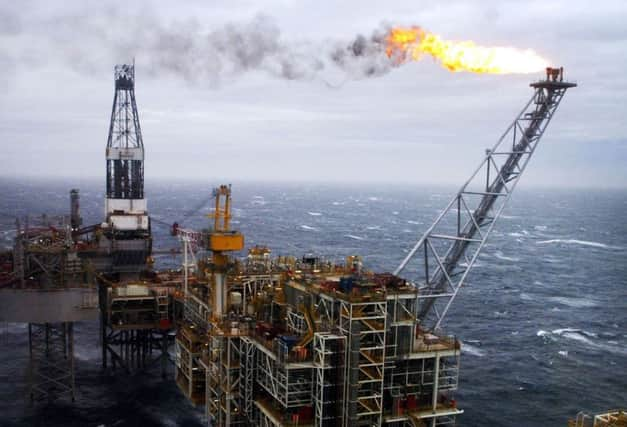Leader comment: Oil is an unreliable roadmap for the future


The Scottish Government’s figures show that the country’s deficit reached almost £15 billion in the last financial year after revenues from North Sea oil and gas plummeted by more than 50 per cent, down from £4.8bn in 2013-14 to £2.25bn last year.
The Government Expenditure and Revenue Scotland (GERS) figures revealed a deficit of £14.9bn for 2014-15 when a geographic share of those revenues is allocated to Scotland. Excluding North Sea revenues, the deficit ran to an eyewatering £16.7bn.
Advertisement
Hide AdAdvertisement
Hide AdSuch stark statistics put paid to the rosy picture the Scottish Government paints of Scotland’s economy. Even removing the capital expenditure element from the equation does little to improve the sum, with Scotland still £11.9bn in the red.
Oil, of course, was the bedrock of the SNP’s plans for a prosperous independent Scotland. Former First Minister Alex Salmond entered the battle of the referendum campaign with financial projections based on an oil price of $110 a barrel. At the time, his forecasts were dismissed by his political opponents as presumptuous.
With the benefit of hindsight, such rebukes seem overly generous and the case laid out in the White Paper, Scotland’s Future, looks particularly ill-conceived.
A deficit of 9.7 per cent of GDP – compared to 4.9 per cent for the UK as a whole – should give cause for concern. To make matters worse, it is widely expected that next year will bring even bleaker numbers for the Scottish economy.
Murdo Fraser, Scottish Conservative finance spokesman, made a straightforward but effective observation after the release of the GERS data. “Figures for individual years will differ but that central fact doesn’t change,” he said. “These figures illustrate the impact of the falling oil price on Scotland’s balance sheet.”
For her part, First Minister Nicola Sturgeon acknowledged that although Scotland was not immmune to the travails of the oil industry internationally, the onshore economy was in good shape, with the growth in onshore revenues set to “significantly exceed” the fall in oil revenues, assuming the oil price stays where it is.
As the past few years have shown, offering up predictions of that price is an inexact and potentially dangerous science, and Ms Sturgeon should be wary of relying on the assumptions that guided her predecessor in Bute House.
However, she is right to focus on building up other areas of Scotland’s economy; it is no coincidence that the venue for her media briefing yesterday was Codebase, the technology incubator in Edinburgh.
Advertisement
Hide AdAdvertisement
Hide AdSuch sectors are a beacon of hope and have the potential to help improve the balance sheet, but at the same time, it is crucial that Ms Sturgeon does all she can to help the North Sea recover from its crisis.